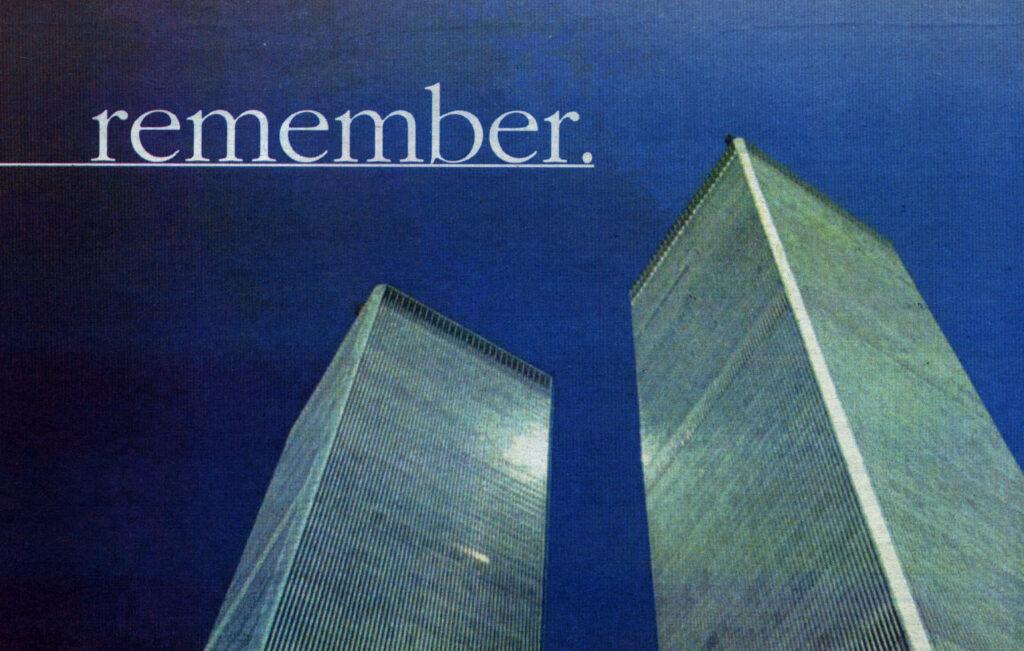Dionte Berry
News Editor
dberry11@murraystate.edu
America was under attack 20 years ago on Sept. 11, 2001, and it was a catalyst that has outlined much of America’s international military actions and national feelings towards the Middle East and followers of Islam.
The 9/11 attacks signaled the beginning of the War on Terrorism, and gave rise to changes that would alter the course of history.
Despite the attacks being in New York and Washington D.C, Kentuckians were still affected, being home to a few military bases soldiers in the state were deployed to the Middle East.
While most students were too young to remember the day, 9/11 is a day that most professors and staff can recall.
Associate English professor Timothy Johns was a graduate student getting his doctorate at the State University of New York, Stony Brook. On the morning of the attacks, he was driving with a friend to Stony Brook to teach a class.
“It was a beautiful day, clear, cool and not a cloud in the sky,” Johns said. “During the drive, I kept noticing emergency vehicles flying by in the opposite direction, as well as unmarked SUVs with sirens, so I asked Melissa to pause the Prince CD we were listening to. On the radio, an R&B station, they were reporting the news: both towers had already been hit.”
He and his friend continued their drive to Stony Brook and over the radio they heard the Pentagon had also been hit. Johns said this is when it started to feel like he was in a movie.
“As we drove, you could see the towers in the distance looking like tall burning cigarettes,” Johns said. “When we reached campus, I was in shock.”
After the attacks, Johns was a part of organizing anti-war protests on his campus, because he had a feeling America would take this attack as an opportunity to start war.
Beyond New York, the 9/11 attacks sent shock waves through the nation.
At the time of the attack, Assistant Professor of Journalism Stephanie Anderson was a sophomore working on her bachelor’s degree at Murray State. At the time, she living with two roommates.
“I woke up that morning and told my roommates that I had a strange dream about planes crashing into the World Trade Center. I didn’t even know what the World Trade Center was. We turned the television on and saw the news coverage,” Anderson said. “I wasn’t dreaming. I fell asleep with my alarm clock radio on and was hearing the reports while I was asleep that morning.”
Even though Anderson was in Murray, she still feared what could happen or if there were any other targets.
A week after the attacks Anderson felt motivated to do something to help.
“I met with a recruiter in Paducah for the U.S. Air Force and was ready to join and serve my country,” Anderson said. “The thought terrified my mother which eventually led me to reconsider enlisting.”
Years later Anderson traveled to New York City with former Murray State student Ashley Bitters to do research that encompassed 9/11.
“We were able to travel to NYC and interview several journalists who have covered a number of traumatic events including 9/11,” Anderson said. “ It was truly enlightening to see the impact it had on journalists who were at ground zero that day. These were photographers and reporters but became emergency responders helping the injured get out alive, all while documenting what they were witnessing.”
From her experiences of witnessing all of the news coverage, Anderson encourages students who were not alive or too young to remember to do their research and learn about what happened.
“While it brought about fear in most, it also brought about a sense of patriotism and community,” Anderson said. “I think we need both of those back in our lives right now.”
Racer Oral Communication Center Director Regina Hudspeth also remembers the unity in America after the 9/11 attacks.
“It definitely brought us together as a nation and everyone was more patriotic, but unfortunately, it was short-lived to a certain extent,” Hudspeth said. “Around 3,000 people were killed and there is no telling how many family members’ lives changed forever that day.”
On 9/11, Hudspeth’s specific thoughts were that it was an accident, but once she saw the second plane hit the South Tower.
After she realized America was under attack, Hudspeth was overtaken by emotions.
“I remember thinking what if something like that had happened here it could take both parents, maybe even grandparents from one family because there were generations of families that worked at our facility,” Hudspeth said. “Needless to say, we did not do much work, if we did anything at all that day. We called all our family members.”
Assistant Director of the Center for Student Engagement and Success Jennifer Smith wasn’t at work when she found out, but at home with her six-month-old baby
Smith said she remembers holding her child for most of the day and just watching the news and not believing what was happening.
“The thing I remember the most from that day after the towers were hit was seeing the people covered in concrete dust and ash,” Smith said. “The disoriented looks on people’s faces, I remember those faces.”
After the attacks, Smith describes the same feelings of unity in America.
“Initially, I really thought the way America came together after 9/11 was incredible. People helping one another, it was wonderful,” Smith said. “Sadly, I don’t see that same camaraderie today.”
After 20 years, the effects of 9/11 are still prominent. The War on Terror that started because of it is coming to a close as American troops have been pulled out of Afghanistan.
People are still grieving from family members that have been lost in both 9/11 and the War on Terror.




























































































